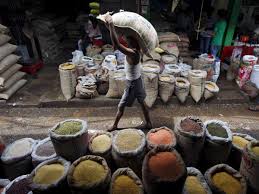If the current government policies of giving heavy subsidy on paddy continue, then India will have to import 80-100 lakh tonnes of pulses by the year 2030 to meet the domestic demand. This is the statement of agricultural economist Ashok Gulati. According to the news of Bhasha, Gulati says that farmers need to be encouraged to grow pulses, because pulses require less water than paddy and are also more nutritious.
Emphasis on crop-neutral incentive structure
According to the news, Gulati, former chairman of the Commission for Agricultural Costs and Prices (CACP), emphasized on ‘crop-neutral incentive structure’ to encourage farmers to grow pulses and oilseeds to make India self-reliant. When asked about the government’s goal of becoming self-sufficient in pulses, Gulati told reporters that if the current policies continue, India will have to import 80-100 lakh tonnes of pulses by the year 2030.
Self-sufficiency in pulses can be achieved
The country imported 47.38 lakh tonnes of pulses in the financial year 2023-24. Gulati said that if policies are changed, self-sufficiency in pulses can be achieved. He was addressing a press conference organised by the India Pulses and Grains Association (IPGA) on the occasion of ‘India Pulses Seminar 2024’ in the national capital. IPGA Chairman Bimal Kothari said that the production of pulses in the country has been around 240-250 lakh tonnes in the last 3-4 years, while imports increased to 47 lakh tonnes in the last financial year.
Punjab to get ₹39,000 per hectare subsidy for paddy cultivation
The demand for pulses is estimated to reach 400 lakh tonnes by the year 2030. Gulati said the current policies of the Centre and state governments favour paddy cultivation as there is heavy subsidy on inputs like electricity and fertilisers. He said, we estimate that there is a subsidy of Rs 39,000 per hectare for paddy cultivation in Punjab. This is being given by both the Centre and the state in the form of subsidy on electricity and fertilisers. Gulati said similar subsidy should be given for cultivation of pulses and oilseeds as well`








